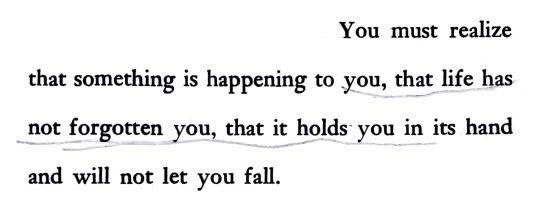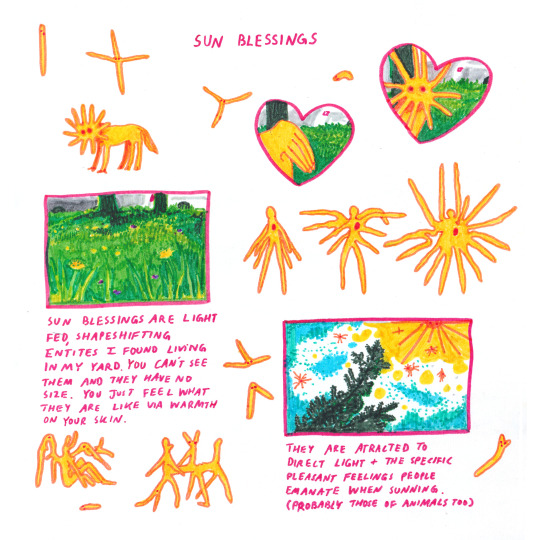22 - illustration student - language - general university organisation - learning 한국어 and Kernewek (SWF) - 안녕하세요, 제 이름은 베키입니다! 저는 언어 배우는과 책 읽는과 그림 그리는 좋아해요! 한국어 8개월만 동안 배워서 많은 실수가 만들 거예요! ~
Don't wanna be here? Send us removal request.
Text
This summer will be such a spiritually healing experience for me.
3K notes
·
View notes
Text

please take this panel with no context
13K notes
·
View notes
Text
“On Mondays, Wednesdays, and Fridays at 9:35a.m., I am usually in a lecture hall at the university, expounding about botany and ecology — trying, in short, to explain to my students how Skywoman’s gardens, known by some as ‘global ecosystems,’ function.
One otherwise unremarkable morning I gave the students in my General Ecology class a survey. Among other things, they were asked to rate their understanding of the negative interactions between humans and the environment. Nearly every one of the two hundred students said confidently that humans and nature are a bad mix.
The response was, in a way, not very surprising. They were well schooled in the mechanics of climate change, toxins in the land and water, and the crisis of habitat loss. Later in the survey, they were asked to rate their knowledge of positive interactions between people and land. The median response was ‘none.’ I was stunned.
How is it possible that in twenty years of education they cannot think of any beneficial relationships between people and the environment? Perhaps the negative examples they see every day — brown fields,factory farms, suburban sprawl — truncated their ability to see some good between humans and the earth. As the land becomes impoverished, so too does the scope of their vision.
When we talked about this after class, I realized that they could not even imagine what beneficial relations between their species and others might look like. How can we begin to move toward ecological and cultural sustainability if we cannot even imagine what the path feels like?”
Robin Wall Kimmerer in Braiding Sweetgrass
_________________
The above passage introduces one of Kimmerer’s primary goals in Braiding Sweetgrass, which is to show us how human beings can cultivate mutual, respectful relationships with the earth and all its creatures. Most of her examples of beneficial interactions stem from the practices and ideologies that various Indigenous communities have held for centuries or even millennia. Indigenous knowledge and wisdom is vital to ecological sustainability.
Questions for Reflection:
Can you think of any positive interactions between humans and other species or the land? If you can’t think of any (I know I struggled to), I highly recommend reading Braiding Sweetgrass, particularly chapter titled “Mishkos Kenomagwen: The Teachings of Grass,” in which Kimmerer evinces how sweetgrass only thrives when there are humans conscientiously harvesting it, as well as the chapter titled “Wisgaak Gokpenagen: A Black Ash Basket,” in which Kimmerer evinces how Black Ash trees do better when humans cut down some but not all of them in a forest. You can find a pdf of Braiding Sweetgrass online for free.
Why is noticing where and when humans have benefited the our world just as important as owning up to how we’ve injured it? If we don’t believe such interactions exist, how does that hinder efforts at sustainability?
Further Reading:
This post on caretaker agriculture
“The Pristine Myth: The Landscape of the Americas in 1492″ - article on human impact on the environment pre-Columbus
This academic article on “Bison, Anthropogenic Fire, and the Origins of Agriculture in Easter North America”
“What Conservation Efforts Can Learn from Indigenous Communities”
Indigenous Knowledge for Disaster Reduction
“Towards Decolonization and Settler Responsibility”
This post is part of a Lenten series for 2021, with daily passages shared from various texts on life and death, suffering and solidarity, and faith at the intersections and the margins.
650 notes
·
View notes
Text
idk whether it’s cute or depressing how many opportunities people have invented to make wishes. birthday candles, eyelashes, fountains, stars, dandelions. people say they don’t believe in the universe or any kind of higher power but nobody ever passes up an opportunity to make a wish
24K notes
·
View notes
Text

Bringing out a bunch of the starters from the greenhouses 🪴
45 notes
·
View notes
Text




So living alone has been the hottest thing I’ve ever done
1K notes
·
View notes
Text

rainer maria rilke, letters to a young poet
78K notes
·
View notes
Text
Many places have a “forest that shouldn’t be entered.” Even people who are used to working in the mountains feel there is something there. They are suddenly overcome with fear and it becomes the custom to avoid certain places. These places exist. I don’t know what is there, but I think they are real. I’m not a believer in the occult, but the world is more than we can fathom with our five senses. This world doesn’t exist just for humans. So I think it’s all right to have such things. This is why I think it’s a mistake to think about nature from the idea of efficiency, that forests should be preserved because they are essential for human beings …
I am concerned, because for me the deep forest is connected in some way to the darkness deep in my heart. I feel that if it is erased, then the darkness inside my heart would also disappear, and my existence would grow shallow.
Hayao Miyazaki, “Totoro Was Not Made as a Nostalgia Piece”, Starting Point: 1979-1996 (via perkwunos)
47K notes
·
View notes
Photo

they’re reminding me how to feel good
8K notes
·
View notes
Text
So, today’s bit of largely overlooked British history for you is the Prayer Book Rebellion or Western Rising, or in Cornish Rebellyans an Lyver Pejadow Kebmyn. This happened in 1549, when Edward VI was on the throne.
My favourite thing about it is their slogan of “Kill All the Gentlemen” (speaking about gentlemen as a class), which is really the “Eat the Rich” of it’s time.
Although the rebellion was triggered due to the introduction of an English Prayer Book, and was partly motivated by a desire to keep Catholic rituals in place, there were also a lot of economic factors involved. During this period, more and more common land was being enclosed. People in the Westcountry were suffering due to a new Poll Tax on sheep. There had also been a sharp increase in the price of wheat, which caused further economic hardship.
However, the rebellion was also triggered specifically by pro-catholic sentiment as well as Cornish seperatism. The Catholic Church in Cornwall has always been accomadating of the Cornish, celtic culture, and at the time most people in Cornwall still spoke Cornish, with many in the West not speaking English. They saw the imposition of English services and English prayer as a cultural attack, in a way that Latin services were not. There was also historic anger over the destruction of Glasney College and Crantock College which were local monestaries.
Initially, the rebellion was quite successful. The rebels captured St Micheal’s Mount, and Trematon Castle (taking Sir Richard Grenville prisoner).
The Cornish Rebels met with a force of Catholics from Devon outside Exeter, and laid siege to the city.
However, after several battles, in which somewhere between 2000 and 5000 rebels were killed and the leaders of the rebellion were cancelled.
Following this, the Cornish language, and ideas of Cornish nationhood were repressed. The loss of life, and the fact there was never a translation of the prayerbook into Cornish is thought to have been a turning point for the Cornish language, and part of the reason it did not survive into the present day, like Welsh.
This was really quite a significant event at the time- but it wasn’t touched on during History lessons at school- despite the fact that I went to secondary school in Cornwall.
31 notes
·
View notes
Text
how can you tell me that soulmates aren't real when you've turned to look at a loved one and made faces at each other when someone says something funny or stupid and your first instinct is to look at them and stare at each other in amusement. love is real
42K notes
·
View notes
Text
more love languages !
'this reminded me of you'
unexpected good morning / sweet dreams texts
long hugs before you leave
calls where half the time you can just hear the other person breathing and it becomes the best sound in the world
playlists
second hand books filled with annotations
22K notes
·
View notes
Text
Let’s work on our insecurities, challenge unbinding the old, understand each other’s trauma and how it manifests, emotionally support one another, honor the inner child, master the art of communication, hold ourselves and each other accountable, be a safe space for individual healing
2K notes
·
View notes
Text
love is a feeling but commitment is a choice, and I pray we all find people who continue to choose us even when love gets hard
23K notes
·
View notes
Text

many don't realize that it is sacred space for which they yearn most
129 notes
·
View notes

